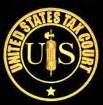You can take your neighbor to court. You can take your boss to court. You can take your spouse to court. And….you can even take the IRS to court.
Many taxpayers don’t realize that they have an alternative if they can’t resolve a dispute directly with the IRS. They can turn to the United States Tax Court.
The Tax Court is not affiliated with the IRS, but rather provides taxpayers an independent destination with tax-savvy federal judges who issue opinions and decisions.
 Most taxpayers who file a petition with the court seek relief from an IRS assessment of a deficiency. Generally, they either dispute the amount the IRS says they owe or the method the IRS used to determine the deficiency. They may have already attempted to appeal through the IRS appeals process, but the IRS did not budge (which may not be a surprise).
Most taxpayers who file a petition with the court seek relief from an IRS assessment of a deficiency. Generally, they either dispute the amount the IRS says they owe or the method the IRS used to determine the deficiency. They may have already attempted to appeal through the IRS appeals process, but the IRS did not budge (which may not be a surprise).
The Tax Court filing fee is $60 and the payment of the underlying tax is usually postponed pending the outcome of the case. The petition has to be filed in a timely way depending upon the kind of case and the tax year of the disputed issue; so carefully following filing instructions is crucial to getting the case on the court docket.
A case is tried in Tax Court before a judge. There is no jury. Both the taxpayer and the IRS are parties to the case and are equally responsible for presenting documents, testimony and arguments to prove their side of the issue.
A taxpayer may use a practitioner or attorney that has been admitted to the bar of the Tax Court or they can represent themselves. About 45% of taxpayers with a case in Tax Court choose to face the judge without representation.
The U.S. Tax Court is officially located in Washington, D.C., but 19 judges travel nationwide to conduct trials in designated cities with large populations, such as Los Angeles and New York. Typically, they hold court in an office that is located in a federal courthouse in that city.
In smaller cities, the Tax Court does not have a permanent office for trials. In those locations, only “small tax cases” are heard and are usually held in chambers; that is, in an informal office setting rather than a more formal courtroom. Taxpayers with more complicated cases must travel to one of the larger cities for a trial in a federal courthouse there.
In most tax disputes that involve $50,000 or less, the court suggests that taxpayers elect to have their cases heard in the faster and simplified “small tax case” procedure. However, cases heard under these rules are not appealable.
Tax Court trials in Missouri are held in federal courthouses in Kansas City and St. Louis. In Kansas, there is no permanent courtroom and only small tax cases are heard in Wichita. There is no permanent courtroom in Nebraska and, if a taxpayer files, he or she is notified by letter where the case will be heard.
Reports show that last year, 30,000 taxpayers filed cases with the Tax Court. A majority of them were settled without having to go to trial. Several types of cases beyond deficiency arguments are heard including requests for relief from joint liability, failure to pay due to medical causes, interest abatement, appeals of Collection Due Process (CDP) hearings, worker classification disagreements, disagreements over business expense claims and more. In some cases, the judge may determine the matter falls under the jurisdiction of the Bankruptcy Court or the U.S. Court of Federal Claims.
 Who wins most often? It depends upon the case. For example, taxpayers are fully successful in about 15% of the cases involving tax assessments and another 10% result in split decisions that reduce the IRS assessment. But, in cases where a taxpayer has been assessed over undocumented business expense claims or underreporting income, taxpayers only fully prevailed in 2% of the cases. The IRS usually wins 90% of cases involving a lien against a non-paying taxpayer’s property and 95% of cases involving a summons to examine records and transactions related to a civil or criminal tax liability.
Who wins most often? It depends upon the case. For example, taxpayers are fully successful in about 15% of the cases involving tax assessments and another 10% result in split decisions that reduce the IRS assessment. But, in cases where a taxpayer has been assessed over undocumented business expense claims or underreporting income, taxpayers only fully prevailed in 2% of the cases. The IRS usually wins 90% of cases involving a lien against a non-paying taxpayer’s property and 95% of cases involving a summons to examine records and transactions related to a civil or criminal tax liability.
The Tax Court is a helpful tool for taxpayers who believe they have pursued all over venues with no success, but have the documentation and the fair argument that the IRS has issued an unfair assessment. P.S. An actual argument thatwas used, but was not successful for the taxpayer, is: “I used TurboTax and any tax error is that company’s fault.”
If you have any questions about an IRS audit or assessment, contact us at McRuer CPAs and we’d be happy to discuss your options.
 is now
is now 
